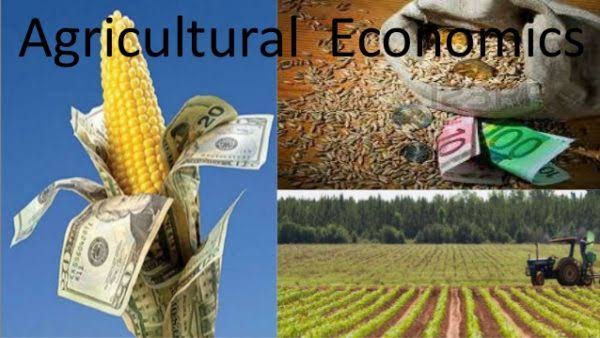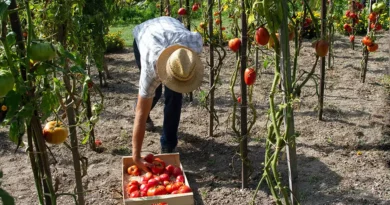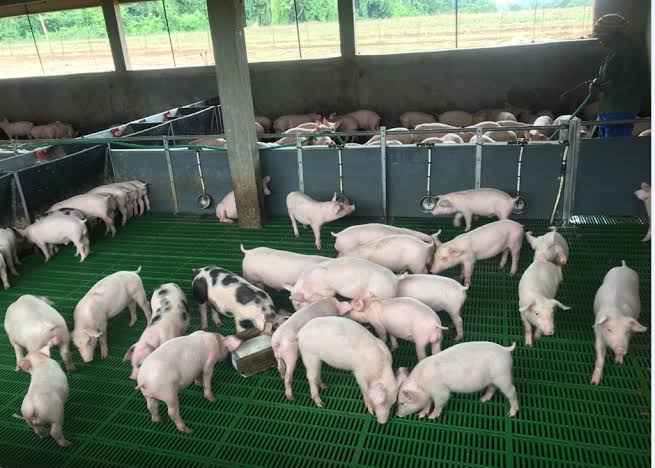Benefits of Studying Agricultural Economics
Agricultural economics is a field of study that focuses on the economic aspects of the production, distribution, and consumption of agricultural goods and services. It encompasses a wide range of topics, including farm management, resource allocation, marketing, trade, rural development, and policy analysis.
Agricultural economists use a variety of tools and techniques, such as microeconomic and econometric analysis, to study the agricultural sector.
One of the main goals of agricultural economics is to understand how farmers, agribusinesses, and other actors in the agricultural sector make decisions and how these decisions affect the performance of the sector.
Agricultural economists study how farmers allocate resources, such as land, labor, and capital, to maximize profits and how agribusinesses make decisions about production, marketing, and investment.
They also study how government policies, such as trade agreements, subsidies, and regulations, affect the agricultural sector.
Agricultural economics is also concerned with the broader social and environmental implications of agricultural production. This includes issues such as food security, rural development, and the conservation of natural resources.
Read Also: How To Setup A Tomato Farm
Agricultural economists use economic analysis to understand how different policies and practices can promote sustainable and socially responsible agricultural systems.
The importance of agricultural economics in understanding the agricultural industry is that it provides a framework for analyzing the complex and dynamic interactions between different actors and factors in the sector.
Agricultural economists use economic concepts and tools to study how farmers, agribusinesses, and governments make decisions, how these decisions affect the performance of the sector, and how policies and programs can be designed to improve the sector’s performance.
This knowledge can be used to inform policy decisions and to guide the development of sustainable and socially responsible agricultural systems.
Agricultural economics also has a significant role in helping to understand the impact of the agricultural industry on the environment, food security, and rural development.
Agricultural economists study the trade-offs between economic growth and environmental preservation, the impact of different policies on rural poverty, and the relationship between agricultural productivity and food security.
In summary, Agricultural Economics is an interdisciplinary field that combines economic theory, statistics, and other analytical tools to study the production, distribution, and consumption of agricultural goods and services.
It has a critical role in understanding the agricultural industry, by providing a framework for analyzing the complex and dynamic interactions between different actors and factors in the sector, it helps in informing policy decisions and to guide the development of sustainable and socially responsible agricultural systems.
Agricultural economics also plays a significant role in understanding the impact of the agricultural industry on the environment, food security, and rural development.
Agricultural Production and Resource Use
Agricultural production and resource use are fundamental concepts in agricultural economics. Agricultural production refers to the process of growing crops and raising animals for food, fiber, and other products. It involves the use of resources such as land, labor, capital, and technology to produce and market these goods and services.
Agricultural resource use refers to the way in which farmers allocate and use the resources at their disposal to produce agricultural goods. This includes decisions about what crops to grow, how much land to use, how much labor to employ, and what technology to adopt.
Farmers have to make decisions about how to allocate their resources to maximize profits while also considering other factors such as risk, uncertainty and environmental concerns. The allocation of resources is influenced by the market conditions, and the prices of inputs and outputs.
Farmers also have to consider the trade-offs between different uses of their resources. For example, they may have to decide between using their land for growing food crops or using it for growing biofuel crops.
Similarly, they may have to decide between using their labor to produce more crops or using it to improve the quality of their crops.
Agricultural economists use economic analysis to study how farmers make these decisions, how these decisions affect the performance of the agricultural sector and how policies and programs can be designed to improve the sector’s performance.
This includes analyzing how farmers respond to changes in prices, subsidies, taxes, and regulations, and how these changes affect the allocation of resources.
In summary, Agricultural production is the process of growing crops and raising animals for food, fiber, and other products, it involves the use of resources such as land, labor, capital, and technology to produce and market these goods and services.
Agricultural resource use refers to the way in which farmers allocate and use these resources to produce agricultural goods, and it’s influenced by market conditions, and the prices of inputs and outputs, farmers have to make decisions about how to allocate their resources to maximize profits while also considering other factors such as risk, uncertainty and environmental concerns.
Agricultural economists use economic analysis to study these decisions, and how policies and programs can be designed to improve the sector’s performance.
Agricultural Markets and Trade
Agricultural markets and trade are important concepts in agricultural economics that refer to the buying and selling of agricultural goods and services. Agricultural markets can take many forms, including spot markets, futures markets, and options markets, and can be local, regional, or global in scope.
Agricultural trade refers to the exchange of agricultural goods and services between countries. This includes exports, which are goods and services sold by domestic producers to foreign buyers, and imports, which are goods and services bought by domestic buyers from foreign sellers.
Agricultural markets and trade are affected by a variety of factors, such as changes in demand, supply, and prices, as well as government policies and international agreements.
Agricultural economists use economic analysis to study how these factors affect the performance of agricultural markets and trade, and how policies and programs can be designed to improve the sector’s performance.
One important area of study in agricultural markets and trade is the analysis of market structures, such as perfect competition, oligopoly, and monopolies. Agricultural economists also study the role of institutions, such as cooperatives, in the functioning of agricultural markets.
Another important area of study is the impact of trade policies, such as tariffs and quotas, on agricultural markets and trade. Agricultural economists also study the impact of international trade agreements, such as the World Trade Organization, on agricultural markets and trade.
In summary, Agricultural markets and trade are important concepts in agricultural economics that refer to the buying and selling of agricultural goods and services.
Agricultural markets can take many forms, including spot markets, futures markets, and options markets, and can be local, regional, or global in scope. Agricultural trade refers to the exchange of agricultural goods and services between countries.
Agricultural economists use economic analysis to study how factors such as changes in demand, supply, prices, government policies and international agreements affect the performance of agricultural markets and trade, and how policies and programs can be designed to improve the sector’s performance.
Bottom Line
In conclusion, agricultural economics is a field that deals with the study of the production, resource use, markets, and trade of agricultural goods and services. It uses economic analysis to understand how farmers make decisions, how these decisions affect the performance of the agricultural sector, and how policies and programs can be designed to improve the sector’s performance.
Agricultural production refers to the process of growing crops and raising animals for food, fiber, and other products. It involves the use of resources such as land, labor, capital, and technology to produce and market these goods and services.
Agricultural resource use refers to the way in which farmers allocate and use these resources to produce agricultural goods, and it’s influenced by market conditions, and the prices of inputs and outputs.
Agricultural markets and trade are important concepts in agricultural economics that refer to the buying and selling of agricultural goods and services.
Agricultural markets can take many forms, including spot markets, futures markets, and options markets, and can be local, regional, or global in scope. Agricultural trade refers to the exchange of agricultural goods and services between countries.
Agricultural economics is a critical field that helps policymakers, farmers, and other stakeholders in the agricultural industry make informed decisions that lead to sustainable and profitable agricultural production and trade.
It plays a vital role in understanding the economic and social aspects of the agricultural industry and in the design of policies and programs that promote the growth and development of the sector.
Read Also: Guidelines on Finding a Restaurant for Sale



